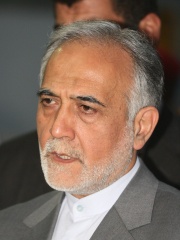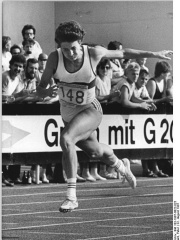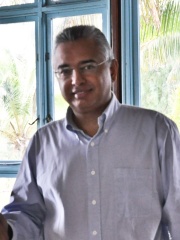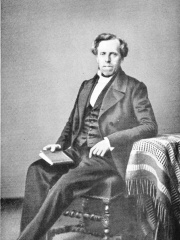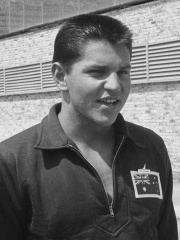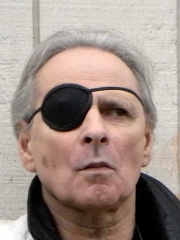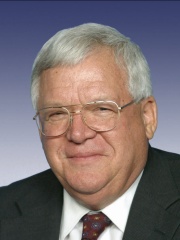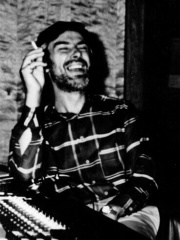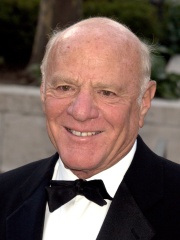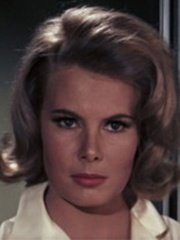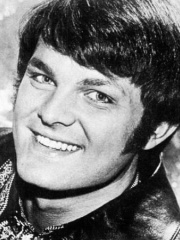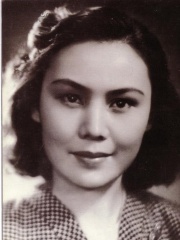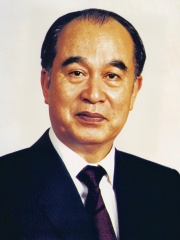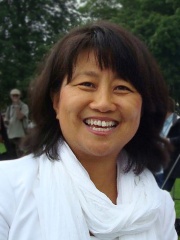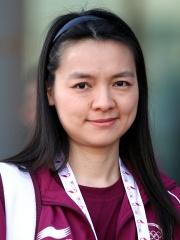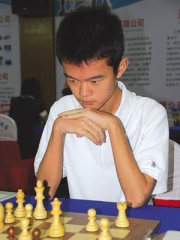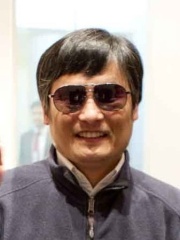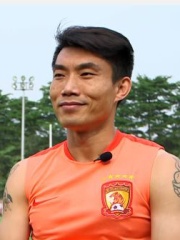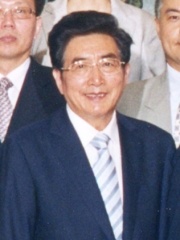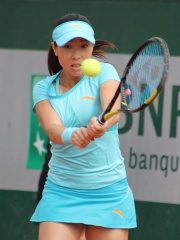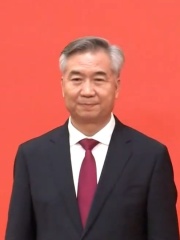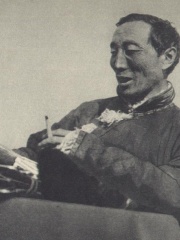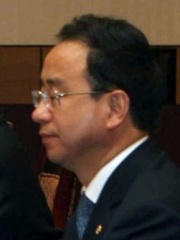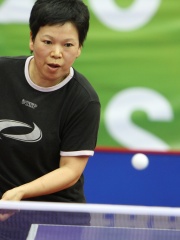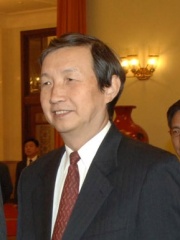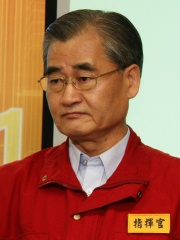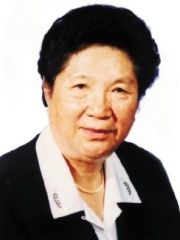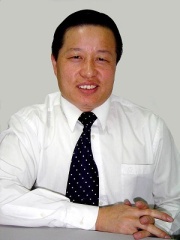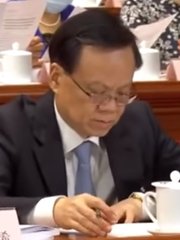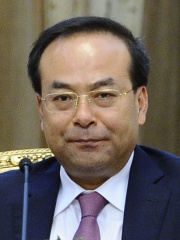POLITICIAN
Liu Qi
1942 - Today
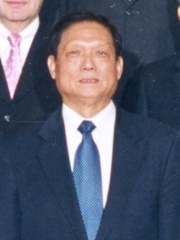
 Liu Qi
Liu Qi
Liu Qi (simplified Chinese: 刘淇; traditional Chinese: 劉淇; pinyin: Liú Qí; born November 3, 1942, in Wujin, Changzhou, Jiangsu) is a retired Chinese politician. He formerly served as the Party Secretary of Beijing, and also a member of the Politburo of the Chinese Communist Party. He was also the President of the Beijing 2008 Olympics Organizing Committee. Read more on Wikipedia
His biography is available in 15 different languages on Wikipedia. Liu Qi is the 17,185th most popular politician (down from 16,146th in 2024), the 1,015th most popular biography from China (down from 984th in 2019) and the 466th most popular Chinese Politician.
Memorability Metrics
Page views of Liu Qi by language
Among POLITICIANS
Among politicians, Liu Qi ranks 17,185 out of 19,576. Before him are Parviz Davoodi, Alexander Dobrindt, Silke Möller, Pravind Jugnauth, Osric of Deira, and Achille Guenée. After him are Galab Donev, Ahmed Obaid Bin Dagher, Anne-Grete Strøm-Erichsen, Peter Mandelson, Lauren Boebert, and Yahya Ould Hademine.
Most Popular Politicians in Wikipedia
Go to all RankingsParviz Davoodi
1952 - Present
HPI: 51.39
Rank: 17,186
Alexander Dobrindt
1970 - Present
HPI: 51.39
Rank: 17,187
Silke Möller
1964 - Present
HPI: 51.38
Rank: 17,188
Pravind Jugnauth
1961 - Present
HPI: 51.37
Rank: 17,189
Osric of Deira
600 - 634
HPI: 51.37
Rank: 17,190
Achille Guenée
1809 - 1880
HPI: 51.37
Rank: 17,191
Liu Qi
1942 - Present
HPI: 51.37
Rank: 17,192
Galab Donev
1967 - Present
HPI: 51.37
Rank: 17,193
Ahmed Obaid Bin Dagher
1952 - Present
HPI: 51.36
Rank: 17,194
Anne-Grete Strøm-Erichsen
1949 - Present
HPI: 51.36
Rank: 17,195
Peter Mandelson
1953 - Present
HPI: 51.36
Rank: 17,196
Lauren Boebert
1986 - Present
HPI: 51.35
Rank: 17,197
Yahya Ould Hademine
1953 - Present
HPI: 51.35
Rank: 17,198
Contemporaries
Among people born in 1942, Liu Qi ranks 655. Before him are John Konrads, Alessandro Pesenti-Rossi, Andrew Vachss, Dennis Hastert, Glyn Johns, and Ozren Bonačić. After him are Tom Mankiewicz, Eloy Campos, Barry Diller, Lyle Campbell, Molly Peters, and Tommy Roe.
Others Born in 1942
Go to all RankingsJohn Konrads
SWIMMER
1942 - 2021
HPI: 51.63
Rank: 649
Alessandro Pesenti-Rossi
RACING DRIVER
1942 - Present
HPI: 51.61
Rank: 650
Andrew Vachss
WRITER
1942 - 2021
HPI: 51.58
Rank: 651
Dennis Hastert
POLITICIAN
1942 - Present
HPI: 51.58
Rank: 652
Glyn Johns
MUSICIAN
1942 - Present
HPI: 51.53
Rank: 653
Ozren Bonačić
ATHLETE
1942 - Present
HPI: 51.53
Rank: 654
Liu Qi
POLITICIAN
1942 - Present
HPI: 51.37
Rank: 655
Tom Mankiewicz
FILM DIRECTOR
1942 - 2010
HPI: 51.34
Rank: 656
Eloy Campos
SOCCER PLAYER
1942 - Present
HPI: 51.31
Rank: 657
Barry Diller
BUSINESSPERSON
1942 - Present
HPI: 51.26
Rank: 658
Lyle Campbell
LINGUIST
1942 - Present
HPI: 51.18
Rank: 659
Molly Peters
ACTOR
1942 - 2017
HPI: 51.04
Rank: 660
Tommy Roe
SINGER
1942 - Present
HPI: 50.97
Rank: 661
In China
Among people born in China, Liu Qi ranks 1,015 out of 1,610. Before him are Bai Yang (1920), Lee Yuan-tsu (1923), Chai Ling (1966), Zhu Chen (1976), Ding Liren (1992), and Chen Guangcheng (1971). After him are Li Tie (1977), Zheng Zhi (1980), Duan Yongping (1961), Guo Jinlong (1947), Fan Zhiyi (1969), and Zheng Jie (1983).
Others born in China
Go to all RankingsBai Yang
ACTOR
1920 - 1996
HPI: 51.61
Rank: 1,009
Lee Yuan-tsu
POLITICIAN
1923 - 2017
HPI: 51.59
Rank: 1,010
Chai Ling
BUSINESSPERSON
1966 - Present
HPI: 51.56
Rank: 1,011
Zhu Chen
CHESS PLAYER
1976 - Present
HPI: 51.56
Rank: 1,012
Ding Liren
CHESS PLAYER
1992 - Present
HPI: 51.41
Rank: 1,013
Chen Guangcheng
SOCIAL ACTIVIST
1971 - Present
HPI: 51.40
Rank: 1,014
Liu Qi
POLITICIAN
1942 - Present
HPI: 51.37
Rank: 1,015
Li Tie
SOCCER PLAYER
1977 - Present
HPI: 51.35
Rank: 1,016
Zheng Zhi
SOCCER PLAYER
1980 - Present
HPI: 51.33
Rank: 1,017
Duan Yongping
BUSINESSPERSON
1961 - Present
HPI: 51.26
Rank: 1,018
Guo Jinlong
POLITICIAN
1947 - Present
HPI: 51.26
Rank: 1,019
Fan Zhiyi
SOCCER PLAYER
1969 - Present
HPI: 51.24
Rank: 1,020
Zheng Jie
TENNIS PLAYER
1983 - Present
HPI: 51.23
Rank: 1,021
Among POLITICIANS In China
Among politicians born in China, Liu Qi ranks 466. Before him are Li Xi (1956), Donduk Kuular (1888), Ling Jihua (1956), Ni Xialian (1963), Ma Kai (1946), and Lee Yuan-tsu (1923). After him are Guo Jinlong (1947), Mao Chi-kuo (1948), Chen Muhua (1921), Gao Zhisheng (1964), Chen Min'er (1960), and Sun Zhengcai (1963).
Li Xi
1956 - Present
HPI: 53.36
Rank: 460
Donduk Kuular
1888 - 1932
HPI: 53.23
Rank: 461
Ling Jihua
1956 - Present
HPI: 52.71
Rank: 462
Ni Xialian
1963 - Present
HPI: 52.42
Rank: 463
Ma Kai
1946 - Present
HPI: 51.82
Rank: 464
Lee Yuan-tsu
1923 - 2017
HPI: 51.59
Rank: 465
Liu Qi
1942 - Present
HPI: 51.37
Rank: 466
Guo Jinlong
1947 - Present
HPI: 51.26
Rank: 467
Mao Chi-kuo
1948 - Present
HPI: 50.95
Rank: 468
Chen Muhua
1921 - 2011
HPI: 50.70
Rank: 469
Gao Zhisheng
1964 - Present
HPI: 50.23
Rank: 470
Chen Min'er
1960 - Present
HPI: 50.04
Rank: 471
Sun Zhengcai
1963 - Present
HPI: 49.39
Rank: 472
